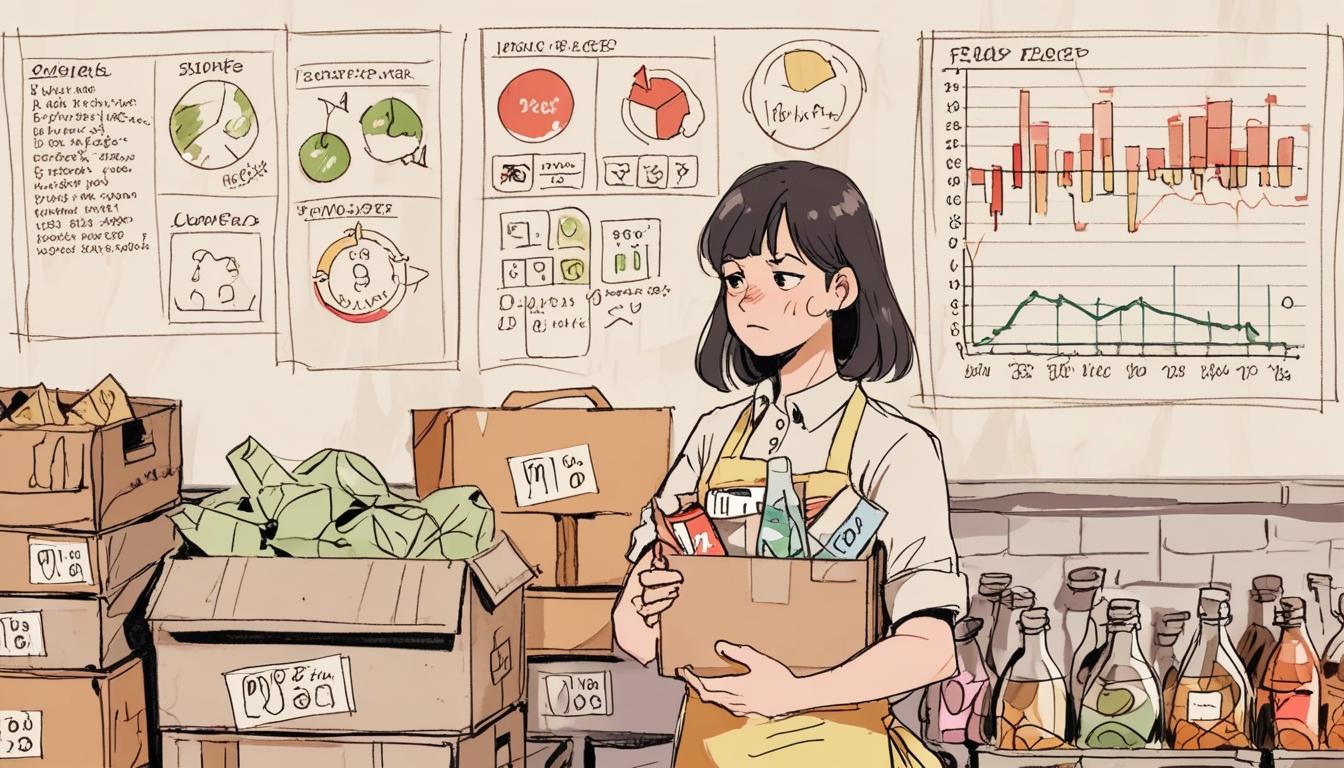Small food producers across the UK warn that the government’s new Extended Producer Responsibility scheme, which introduces a packaging tax, could threaten their survival due to high compliance costs and unfair impacts on recycling practices.
Small food businesses across the United Kingdom are expressing significant concerns over the government’s new Extended Producer Responsibility (EPR) scheme, which introduces a packaging tax aimed at improving recycling rates and reducing waste. The scheme mandates that producers bear responsibility for the entire lifecycle of the packaging they use.
This policy is being implemented in phases, with full roll-out anticipated within the next two years. However, small-scale food companies warn that the EPR tax’s current structure threatens their very survival due to elevated compliance costs that disproportionately affect smaller operations. Business owners highlight that fees, which are calculated largely on the weight and type of packaging, place an undue burden on firms that operate with narrow profit margins and limited resources, unlike larger manufacturers and retailers who possess greater financial resilience and lobbying power.
Concerns have been raised particularly by businesses using packaging materials such as glass—a heavy but fully recyclable option. Under the EPR’s weight-based model, these companies face higher charges, which critics argue may incentivise a shift to lighter, less sustainable packaging alternatives, potentially undermining the environmental objectives of the scheme. Effectively, the flat-rate fee structure is seen as poorly aligned with the varied realities faced by small enterprises.
In addition to economic worries, small business representatives have criticised the policy’s development process, indicating that many were not adequately consulted during planning. Those outside major trade organisations, in particular, feel overlooked and excluded from key decision-making, fueling calls for the government to implement a more graduated or tiered approach to the levy. Among the suggestions are phased fee introductions or subsidies to assist smaller producers in adapting to the policy without debilitating financial impact.
Another pivotal area of contention centres on the handling of the revenue raised by the packaging tax. There is a strong appeal from small businesses for the government to earmark the funds explicitly for investing in UK recycling infrastructure. This is in response to fears that funds might otherwise be diverted to non-environmental spending, diluting the core aim of enhancing recycling capabilities.
There are also apprehensions about consumer consequences. Industry stakeholders warn that the additional packaging costs are likely to be transferred along the supply chain, culminating in higher prices on retail shelves. This outcome could disproportionately impact low-income households already struggling with rising living expenses.
While government officials maintain that the EPR scheme is a necessary step towards establishing a more sustainable waste management framework, the growing pressure from small food companies suggests that revisions to the scheme’s implementation may be required to ensure equitable and effective outcomes for all stakeholders involved.
Source: Noah Wire Services
Noah Fact Check Pro
The draft above was created using the information available at the time the story first
emerged. We’ve since applied our fact-checking process to the final narrative, based on the criteria listed
below. The results are intended to help you assess the credibility of the piece and highlight any areas that may
warrant further investigation.
Freshness check
Score:
8
Notes:
The narrative discusses current policy changes, suggesting it is relatively up-to-date. However, without specific dates or events mentioned in the text, it is difficult to confirm if it reflects the very latest developments.
Quotes check
Score:
6
Notes:
No direct quotes are provided in the text. This makes it challenging to verify the original source or date of any specific statements.
Source reliability
Score:
7
Notes:
The narrative originates from a news aggregation service (Google News) but does not specify a specific publication. Typically, such platforms source from a variety of outlets, which can vary in reliability.
Plausability check
Score:
9
Notes:
The concerns expressed by small businesses regarding regulatory costs and uneven impact are plausible given common challenges faced by similar entities under new regulatory schemes.
Overall assessment
Verdict (FAIL, OPEN, PASS): OPEN
Confidence (LOW, MEDIUM, HIGH): MEDIUM
Summary:
The narrative appears to be generally plausible and addresses current concerns. However, its freshness and source reliability could be improved with more specific dates and information about the original publication.













